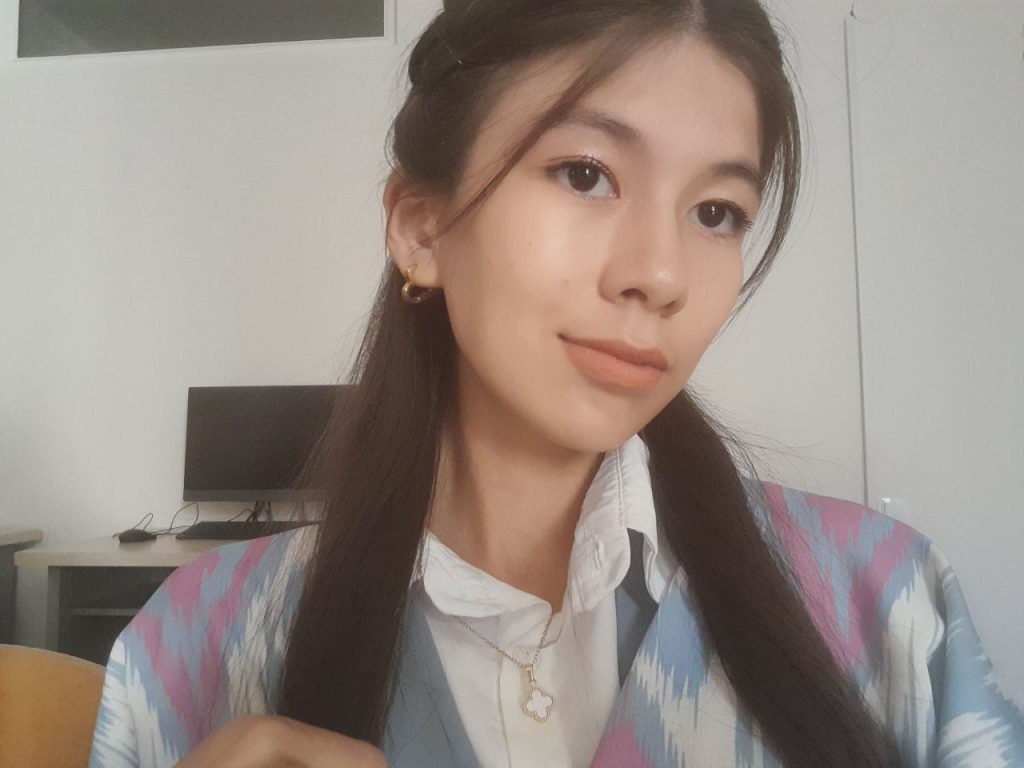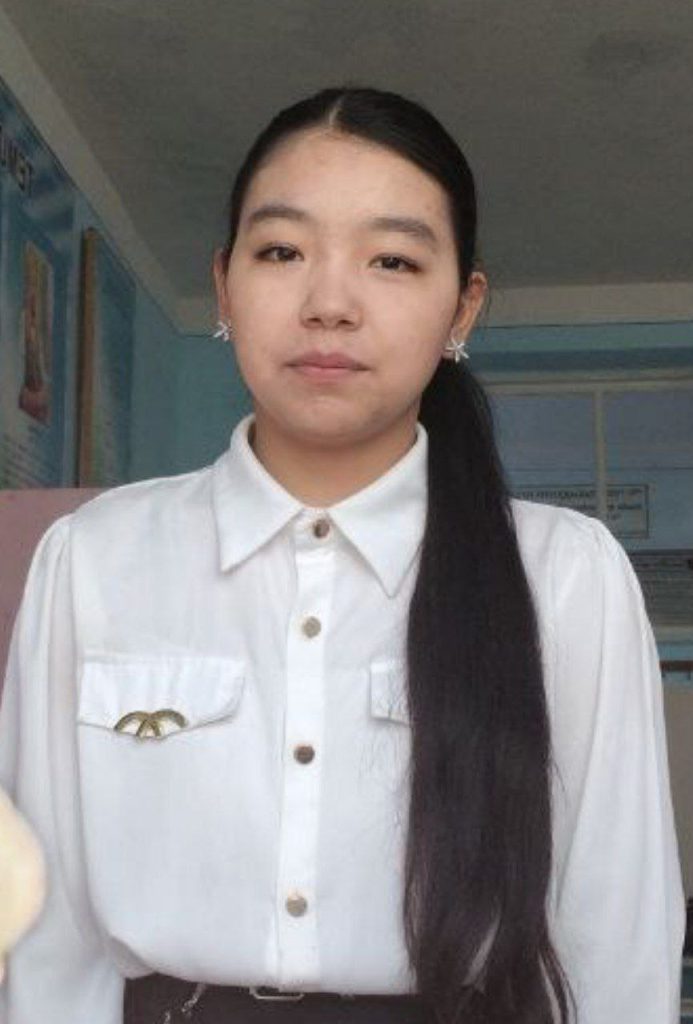DEVELOPING ENGLISH WRITING SKILLS
Scientific Supervisor: Eshquvvatova Gulasal Abdullo qizi
Lecturer, Department of Foreign Languages,
Faculty of Humanities, Termez State Pedagogical Institut.
Author: Allaberdiyeva Farangiz Kholiyor qizi
4th-year Student, Group 401, Department of
Foreign Languages (English), Preschool and
Primary Education, Termez State Pedagogical Institute
f22082004@gmail.com
Abstract This article analyzes the main methods of developing writing skills in English. Written speech is one of the key elements in language learning and includes grammar, style, coherence, and clarity of expression. The article provides several recommendations for improving writing skills. These recommendations, presented with an analytical approach, may be useful for learners, students, language enthusiasts, and teachers.
Keywords: written speech, English language, writing skills, grammar, practical writing, editing, knowledge enhancement, basic methods.
Introduction Nowadays, as the ability to communicate fluently in English becomes increasingly important, so does the ability to express oneself correctly and clearly in written form. Writing skills have become an essential need for students, researchers, learners, educators, writers, businesspeople, or anyone who interacts with foreign countries. Below are the most effective recommendations to help improve writing proficiency in English. We know that the first step in writing in any language is mastering grammar, spelling, and punctuation in depth. Every sentence structure is based on this knowledge. In addition, in order to perform writing skills professionally, regular practice is essential. Writing short texts or stories every day, keeping a diary, or writing notes can be a great help.
Reading plays an important role in developing writing skills. A person who reads a lot absorbs writing styles and expressions and develops the ability to distinguish well-written texts. Therefore, to improve writing skills in English, we should read books, various articles, and short stories regularly.
Writing is extremely important in English language teaching. According to [4] McLaughlin, writing is a complex task where learners need to construct interrelated small tasks. On the other hand, in a comprehensive language approach, writing is not based solely on rules but on meaning-making, purpose, and audience. For students and professionals learning English as a second language, writing is one of the most important skills. It is complex because it requires one to reflect their inner world. When writing in English, one must automatically apply the natural grammar of the language. Achieving such a level of proficiency is only possible after being exposed to thousands of well-written sentences. Reading enables the natural acquisition of grammar concepts. As mentioned earlier, the more you read in English—books and articles—the more noticeable your improvement in writing will be. Reading is one of the most effective methods for improving writing skills not only in English but in any language.
In today’s world, most communication is done electronically. However, many exams are still conducted through handwritten responses. That is, as the French writer [6] Voltaire once said, writing is done through “drawing sounds.”
Indeed, effective communication in writing is very important to achieve success in academic domain. Conveying ideas and providing research effectively to readers with clear and coherent writing is vital. One of the most essential skills for a writer is to make writing coherent. Coherent writing aids readers to comprehend complicated ideas and arguments, and eases the construction of rigorous and nuanced discussions, that`s why generating is both persuasive and affecting writing is vital to achieve success in academic writing. However, many struggle in terms of coherence in their writing. Writing they produce suffers from obscure bond among concepts, disorganization, and insufficiency in paragraphs. Readers can get confusion and frustration for these problems and writers find it challenging to express their conception effectively and they potentially decrease the productiveness of their work. However, there are certain ways to be used to settle these problems. This article provides certain techniques to help writers to create writing that is comprehensible and compelling after looking into the research that has been done into it. [8] The following are the advantages of developing writing skills in English:[7]
-systematically learning the grammatical structure of English;
-enabling students to express ideas in written form in English;
-learning correct spelling of English words;
-systematically understanding grammatical structures;
-choosing appropriate words for different contexts;
-ensuring language learners work independently;
-enabling students to write letters and essays;
-allowing students to draw conclusions;
-enabling students to write stories;
-encouraging effective use of vocabulary;
-enabling students to make necessary changes to a given text.
It is no secret that nowadays young people are less engaged in writing because they have smartphones and other electronic devices connected to the internet, which provide ready-made texts and instant answers. They tend to spend their valuable time searching for what others have written instead of developing their own writing skills. It is clear that learners with strong writing skills are more successful in expressing their ideas independently and achieving their goals than others. Students and language learners often face difficulties in writing, which stem from various problems. To improve writing skills, they need to learn the following four recommendations:
1. Knowing how to write letters correctly;
2. Writing letter combinations correctly;
3. Writing words without spelling errors and knowing their meanings;
4. Forming sentences using a “mathematical approach.”
By applying these recommendations in practice, our writing skills can significantly improve. We know that many students are currently preparing for international certificates like IELTS, spending months or even years to achieve this goal. Most of them struggle in the writing section of the IELTS exam and face challenges in finding solutions to these problems during their studies. Below are some common problems in the writing section and their solutions:
1. Not fully understanding the task (Task Response):
Many students do not read the question carefully and go off-topic. Especially in Task 2 (essay), they fail to respond directly to the question and lower their overall score. They must read the question attentively, identify keywords, and provide a clear and focused response.
2. Lack of ideas and supporting details (Ideas & Support): Many students state their opinion but do not develop it with examples and explanations. The solution is to support each main idea with at least one explanation and one example, asking themselves “Why?” and “How?” while writing.
3. Paragraph structure issues (Coherence and Cohesion):
When ideas are jumbled and there is no order in the paragraph, it becomes unclear to the reader. Each paragraph should have one main idea. Linking words (e.g., for example, however, in contrast…) should be used appropriately and not excessively.
4. Lexical errors (Lexical Resource):
Simple and repetitive words are often used, such as “good,” “bad,” “big,” “a lot of.” Students should use synonyms, but only if they are sure of the meaning and if the words fit the context.
5. Grammatical errors (Grammatical Range and Accuracy):
Tenses, complex sentence structures, passive voice, and conditionals are either used infrequently or incorrectly. The solution is to practice a variety of grammatical structures and analyze each writing task after completion.
6. The most painful issue in writing for students is time management. Students often mismanage time between Task 1 and Task 2, and especially lack time for Task 2. A writing plan should be prepared beforehand to save time. Task 1 — 20 minutes, Task 2 — 40 minutes.
Conclusion To conclude, always pay attention to spelling when writing. Keep practicing, because otherwise it will be difficult to remember the correct spelling of every word. Developing writing skills in English is not a skill that can be mastered in a day or a week. It requires continuous learning, self-discipline, constant effort, clarity in expressing thoughts, and most importantly, a love for writing. The recommendations listed above serve as a guide. The identified problems and their solutions will help strengthen English writing skills even further.
REFERENCES
[1]. Harmer, J. (2004). How to Teach Writing. Pearson Education Limited.
[2]. Hedge, T. (2005). Writing. Oxford University Press.
[3]. Nation, I. S. P. (2009). Teaching ESL/EFL Reading and Writing. Routledge.
[4]. McLaughlin, B. (1987). Theories of Second Language Learning. Edward Arnold.
[5]. Richards, J. C., & Renandya, W. A. (Eds.). (2002). Methodology in Language Teaching: An Anthology of Current Practice. Cambridge University Press.
[6]. Voltaire. (1752). Aphorisms and Selected Writings.
[7]. Muzaffarova N.M. (2023). Rapid Development of Students’ English Writing Skills, International Scientific Journal “Новости образования: исследование в XXI веке”, No. 9(100), Part 3, pp. 1344–1345.
[8].Eldor E. Rajabov. (2024) ‘The ways to produce coherent writing in
English’, Inter education & global study, (5), pp. 421-428. (In English).



